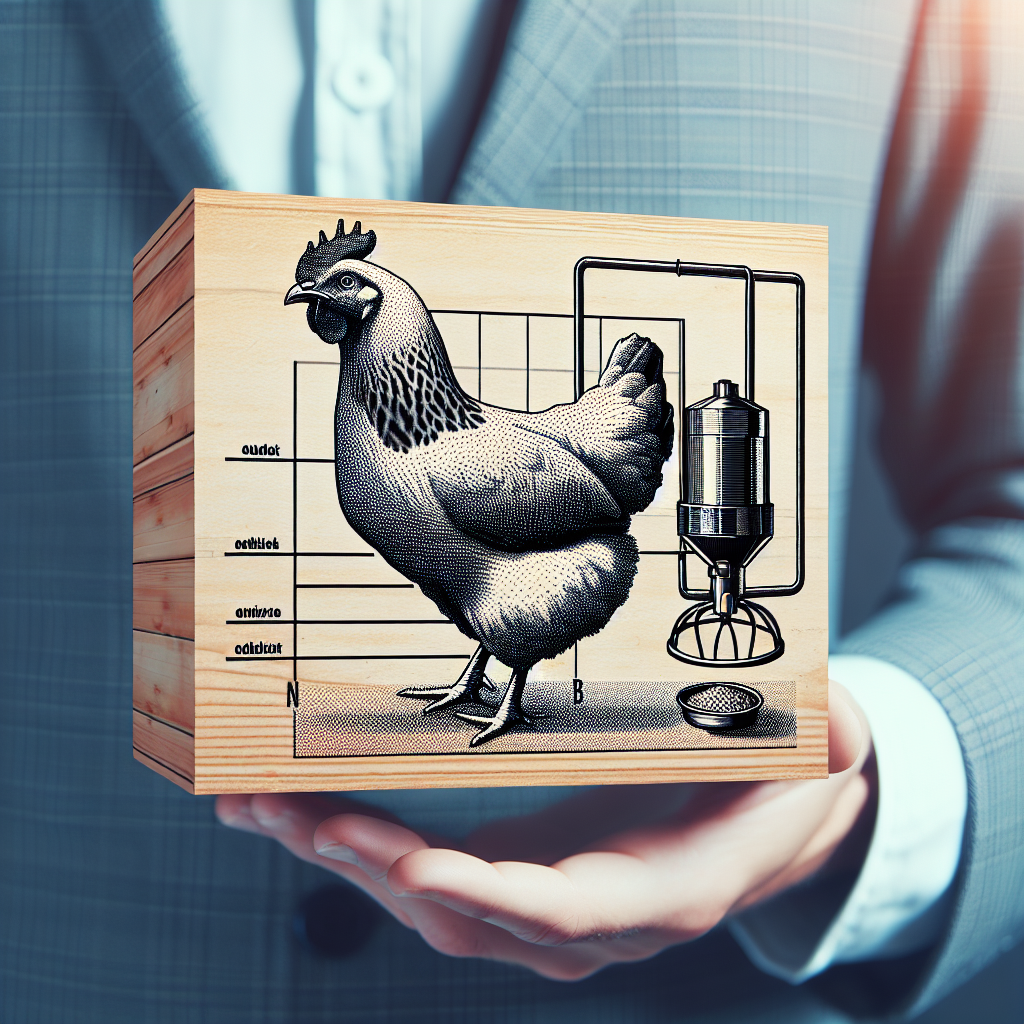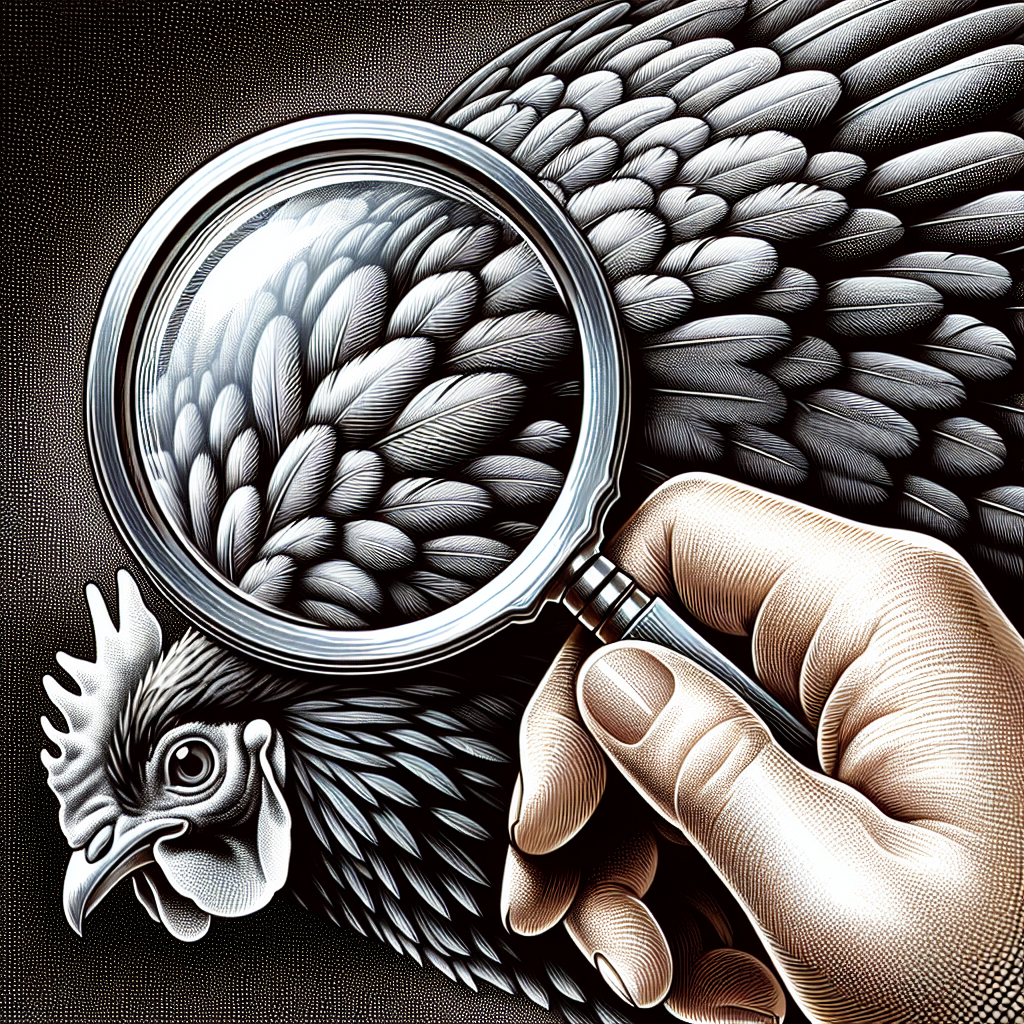Molting periods can be a challenging time for any flock owner, but fear not! In this article, we will explore effective ways to manage and navigate through these molting periods with ease. From providing a balanced diet to keeping their environment clean and comfortable, we’ve got you covered. So, grab your feathered friends and let’s embark on a journey to ensure smooth and stress-free molting experiences for every member of your flock.
Understanding Molting Periods
What is molting?
Molting is a natural process that birds go through to replace their old feathers with new ones. During this period, birds shed their old feathers and grow new ones, ensuring that they have a fresh and healthy plumage. Molting is crucial for birds as it helps them maintain their ability to fly, regulate body temperature, and display vibrant colors.
Why do birds molt?
Birds molt for various reasons, but the primary purpose is to replace old and worn-out feathers. Feathers deteriorate over time due to exposure to the elements, wear and tear, and the need for new growth. Molting also allows birds to adapt to changing seasons and environmental conditions. During molt, birds may change their plumage to match their surroundings better or to attract mates. Additionally, molting can help birds shed any parasites that may have taken up residence in their feathers.
Recognizing Signs of Molting
Changes in feather appearance
One of the most apparent signs that a bird is molting is a change in its feather appearance. Old feathers may become ragged or lose their vibrant color, while new feathers start to emerge. You may notice scattered patches of exposed skin or “pinfeathers” poking through the skin as new feathers begin to grow. The process of molting can take several weeks or even months, depending on the species of bird and the extent of feather replacement.
Reduced egg production
During molting, birds devote a significant amount of their energy and resources to growing new feathers. As a result, egg production typically decreases or pauses altogether. If you observe a sudden decline in egg production from your flock, it may be a sign that they are going through a molt. This reduction in egg production is temporary and should resume once the molting period is over.
Behavioral changes
Molting can affect a bird’s behavior as well. Birds may become more subdued or exhibit signs of discomfort due to itching or irritation during the molting process. They may spend more time preening to care for their new feathers or seek out quiet and secluded areas to rest. It is essential to provide a calm and stress-free environment for your flock during this period to help minimize any behavioral changes.
Creating an Optimal Environment
Provide a stress-free environment
To support your flock during molting, it’s crucial to create a stress-free environment. Avoid loud noises, sudden movements, or any other factors that may startle or disturb the birds. Minimize any unnecessary handling or overcrowding, as this can cause additional stress during this sensitive time. A calm and peaceful atmosphere will help your birds focus on the molting process and promote healthy feather growth.
Maintain optimal temperature and lighting
Birds require consistent and appropriate temperature and lighting conditions to molt successfully. Ensure that your coop or housing area is well-insulated and properly ventilated to maintain a comfortable temperature. Extreme heat or cold can disrupt the molting process and lead to additional stress on the birds. Additionally, provide adequate lighting to ensure that your flock receives the appropriate daylight hours, as this can influence hormonal regulation during molt.
Ensure proper ventilation
Good ventilation is crucial to prevent the buildup of harmful gases and maintain air quality within the coop. Poor ventilation can lead to respiratory issues, which can be especially detrimental during the molting period when birds may already be experiencing some stress. Proper airflow will help keep your flock healthy and support the molting process by promoting optimal feather growth.
Managing Nutrition
Increase protein intake
During molting, birds have an increased demand for protein to support feather growth. Include high-quality protein sources in their diet, such as legumes, soybeans, or mealworms. Providing a balanced and protein-rich feed will ensure that your flock has the necessary nutrients to grow strong and healthy feathers. Consider consulting with a poultry nutritionist to determine the ideal protein content for your specific flock’s needs.
Supplement with vitamins and minerals
In addition to protein, birds also require adequate vitamins and minerals during the molting period. Offer a poultry-specific vitamin and mineral supplement or add natural sources of these nutrients to their diet. Leafy greens, fruits, and vegetables can provide essential vitamins like A, D, and E. Calcium and phosphorus-rich foods, such as oyster shells or cuttlebones, can also support feather growth and overall wellbeing.
Offer fresh and clean water
Water is a fundamental component of a healthy diet for birds. Ensure that your flock has access to fresh and clean water at all times, especially during the molting period. Dehydration can negatively impact feather growth and overall health, so regularly check water sources and clean them as needed. Adding electrolytes to the water can also provide an extra boost of hydration and support the molting process.
Promoting Feather Growth
Regular grooming and dust baths
Grooming plays a vital role in maintaining healthy feathers and promoting their growth. Encourage your birds to engage in regular preening and provide opportunities for dust baths. Dust baths help birds clean their feathers and remove any excess oil or dirt. You can create a designated dust bathing area using sand, fine soil, or diatomaceous earth. Grooming and dust baths will assist in keeping your flock’s feathers in top condition during molting.
Offering calcium-rich foods
Calcium is crucial for the development of strong and healthy feathers. Including calcium-rich foods in your flock’s diet can aid in the successful molting process. Provide sources of calcium, such as crushed eggshells or oyster shells, as a supplement to their regular feed. The additional calcium will support the growth of strong and durable feathers, reducing the risk of breakage and ensuring a healthy plumage.
Avoiding feather pecking
Feather pecking can be a challenging behavior to manage during the molting period. Stress, nutritional deficiencies, or boredom can all contribute to feather pecking within a flock. To prevent this behavior, ensure that your birds have plenty of space and access to enrichment activities. Provide objects to peck at, such as hanging vegetables or specially designed pecking blocks. Regularly inspect your flock for signs of feather damage or pecking and address any issues promptly.
Preventing Cannibalism
Space and housing considerations
Cannibalism is a serious issue that can arise during the molting period, particularly if birds become bored or overcrowded. To prevent cannibalism, ensure that your flock has ample space to move around and engage in natural behaviors. Avoid overcrowding by providing sufficient square footage per bird in the coop or housing area. A comfortable and spacious environment will help reduce stress and minimize the likelihood of cannibalistic behavior.
Provide distractions
Offering distractions and activities can help redirect your flock’s attention away from pecking at each other. Provide a variety of toys and materials for them to explore, such as hanging mirrors, pecking blocks, or edible treat dispensers. These distractions will keep your birds occupied, stimulate their minds, and reduce the likelihood of aggressive behavior during the molting period.
Trim sharp beaks
Birds with sharp beaks are more likely to cause injury to themselves or other flock members. Regularly check the beaks of your birds and trim them if necessary. Beak trimming should be done by a professional or under the guidance of an experienced poultry specialist to ensure it is done safely and effectively. Trimming sharp beaks will help prevent cannibalistic behavior and promote a peaceful and harmonious flock.
Managing Egg Production
Adjusting light exposure
Regulating light exposure is crucial for managing egg production during the molting period. Reduce the number of daylight hours your flock receives to simulate shorter days, as this signals to their reproductive systems that it is not the optimal time for egg-laying. Adjusting the light exposure will give your birds a break from constant egg production and allow them to focus their energy on molting and feather growth.
Enhancing calcium intake
During the molting period, it is important to support calcium intake to promote strong feather growth and overall health. Offer additional sources of calcium, such as crushed eggshells or oyster shells, to supplement their regular diet. Calcium supplements will support your flock during the molting process and prepare them for an eventual return to egg production once molting is complete.
Providing nesting materials
Even if your birds are not actively laying eggs during molting, providing nesting materials is still beneficial. The act of nesting and searching for nesting materials helps keep your flock engaged and encourages natural behaviors. Offer materials like straw, hay, or shredded paper for them to create nests. The availability of nesting materials will maintain a sense of normalcy within the flock and support their overall well-being.
Hygiene and Sanitation
Regularly clean and disinfect
Maintaining a clean and hygienic environment is crucial for the health and well-being of your flock, especially during the molting period. Regularly clean the coop, removing any waste, feathers, or debris. Disinfect surfaces to prevent the spread of harmful bacteria or parasites. The cleanliness of the coop will minimize the risk of infections or infestations that could further stress your birds during molt.
Remove and dispose of feathers
Feathers shed during molting can accumulate quickly in the coop and become a breeding ground for pests or mites. To prevent the buildup of feathers, regularly remove and dispose of any shed feathers. This will reduce the risk of infestation and maintain a cleaner and healthier environment for your flock. Proper feather disposal will also help prevent cannibalism, as some birds may be tempted to peck at and ingest feathers.
Monitor for parasites
Mites and other parasites can be particularly problematic during the molting period, as the weakened state of birds makes them more susceptible. Regularly inspect your flock for signs of parasites, such as excessive scratching, feather loss, or discolored skin. If you suspect a parasite infestation, take immediate action to treat the affected birds and sanitize the coop to prevent the spread of pests.
Monitoring and Observation
Keep track of molting patterns
Observing and keeping track of molting patterns in your flock will help you better understand their individual needs and adjust management practices accordingly. Note when each bird starts and finishes molting, how long each molt lasts, and any notable changes in behavior or feather appearance. This information will guide you in providing appropriate care and support during each molting period.
Observe for any abnormal behaviors
During the molting period, it is essential to monitor your birds for any signs of stress, illness, or abnormal behaviors. Increased aggression, reduced appetite, or prolonged periods of lethargy may indicate underlying health issues. Promptly address any concerning behaviors or symptoms with appropriate veterinary care to ensure the well-being of your flock.
Consult a veterinarian if necessary
If you have any concerns or questions about managing molting periods, it is always a good idea to consult a veterinarian with avian expertise. They can provide valuable advice and guidance specific to your flock’s needs. A professional consultation may be particularly crucial if you suspect any health issues or encounter challenges during the molting process.
Seeking Expert Advice
Consulting poultry specialists
If you require expert guidance on managing molting periods, consider reaching out to poultry specialists. These professionals have extensive knowledge in poultry management and can offer valuable insights tailored to your specific flock’s needs. They can provide advice on nutrition, housing, flock management, and other aspects related to successful molting.
Joining online communities
Joining online communities dedicated to poultry enthusiasts can be an excellent way to connect with experienced flock owners. These communities often provide a platform for sharing knowledge, discussing challenges, and seeking advice from fellow poultry enthusiasts who have faced similar situations. Engaging with these communities can be a valuable resource for managing molting periods effectively.
Attending workshops or seminars
Attending workshops or seminars on poultry management and care can provide a wealth of knowledge on various aspects of molting and flock management. These events often feature industry experts who share their expertise and provide practical tips and strategies. You may even have the opportunity to network with other poultry enthusiasts, fostering a supportive community that can assist you in your molting management journey.
By following these comprehensive guidelines and adopting appropriate management practices, you will be well-equipped to manage molting periods effectively and support the health and well-being of your entire flock. Remember to observe your birds closely, maintain a stress-free environment, and consult experts when needed to ensure the best possible care during each molting season.




